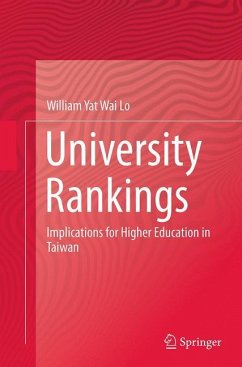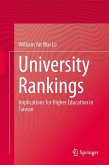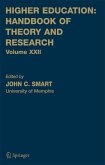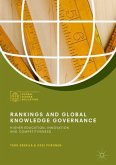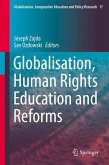This book adopts a qualitative case study approach to provide the readers with a systematic delineation and interpretation of the implications of the university ranking phenomenon for Taiwan's higher education system. It reviews the literature on different theories concerning the global transformation of higher education and presents basic information on higher education in Taiwan. The author develops a four-dimensional framework for the analysis of the ranking phenomenon in the island-state. First, the technological/ecological dimension aims to look into how the rankings have impacted Taiwan's higher education based on empirical findings from five Taiwanese public universities. Next, the technological/geographical dimension examines how Taiwan can use rankings to promote its interests in global higher education. The two conceptual dimensions focus on the relationship between the rankings and power in higher education. They show how the phenomenon can be read and explained through theoretical lenses from ecological and geographical perspectives. From an ecological perspective, the empirical evidence suggests that the influence of rankings varies throughout the academic hierarchy in Taiwan. The theoretical analysis then illustrates the relationship between the ranking phenomenon and the power structure in academic hierarchy. Geographically, while the empirical analysis is based on data from Taiwan, the theoretical analysis offers essential insights that help readers to understand the changing global landscape of higher education and its implications in East Asia.
Bitte wählen Sie Ihr Anliegen aus.
Rechnungen
Retourenschein anfordern
Bestellstatus
Storno

